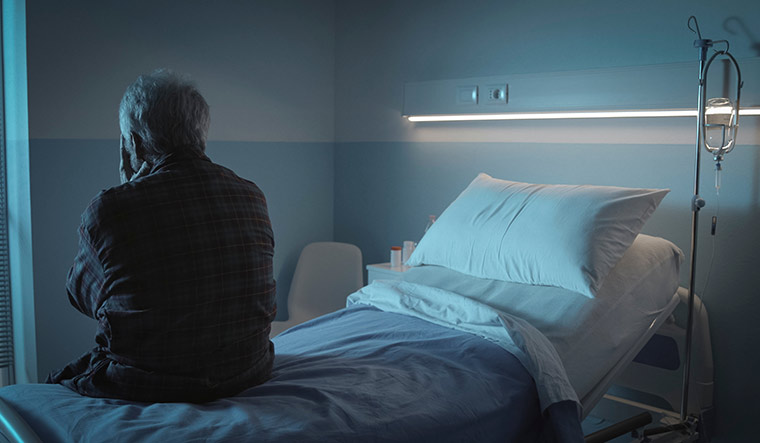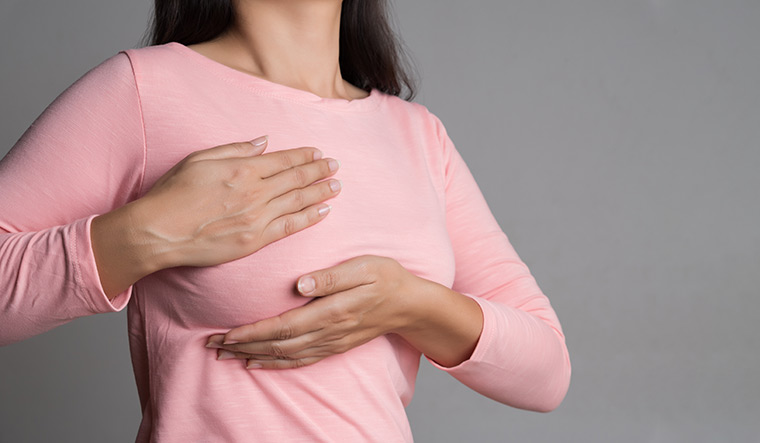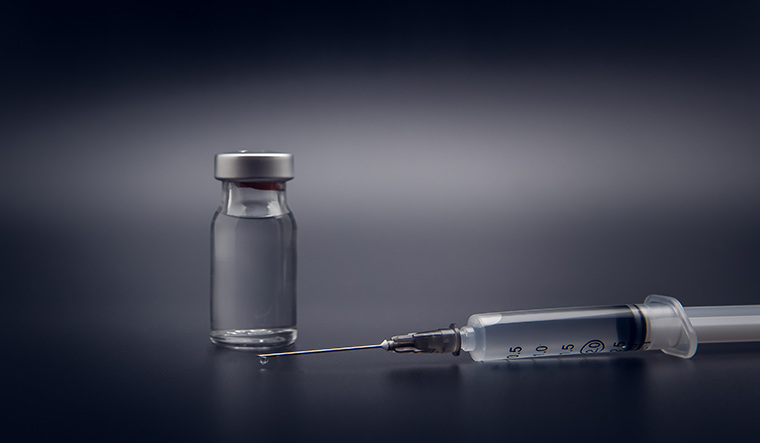PEOPLE WHO sleep six hours or less each night in their 50s and 60s are more likely to develop dementia when they are older.
For the British study published in the journal Nature Communications, the researchers followed 7,959 British adults for about 25 years.
The participants reported their sleep durations six times while they were between ages 35 and 55, and then again between the ages of 63 and 86. Among them, 521 participants developed dementia at an average age of 77.
Those who consistently slept six hours or less per night were about 30 per cent more likely to be diagnosed with dementia, compared to people who regularly slept seven hours per night.
No association was seen between sleeping for eight or more hours and dementia risk.
Exercise can minimise migraine triggers
JUST TWO-AND-A-half hours of exercise a week can reduce migraine triggers, such as stress, depression and sleep problems.
But more than 60 per cent of the people with migraine do not get enough exercise, according to a study presented at the American Academy of Neurology's Annual Meeting.
The study included 4,647 people who completed a questionnaire about their migraine characteristics, sleep, depression, stress, anxiety, and the amount of moderate to vigorous exercise they got each week.
About 75 per cent of the participants had 15 or more migraines a month, while the others had 14 or fewer. People who got less than two-and-a-half hours of moderate to vigorous exercise per week had increased rates of depression, anxiety and sleep problems.
Among people who did not exercise, 47 per cent had depression, 39 per cent had anxiety, and 77 per cent had sleep problems. Among people who exercised the most, only 25 per cent had depression, 28 per cent had anxiety, and 61 per cent had sleep problems.
People who exercised also had fewer migraines. In the no exercise group, 5 per cent had low headache frequency (zero to four headache days per month) and 48 per cent had high headache frequency (25 or more headache days per month). In the high exercise group, 10 per cent had low headache frequency and 28 per cent had high headache frequency.
Wake up to your favourite song
DO YOU WAKE UP GROGGY? You must be experiencing sleep inertia, a feeling of grogginess and lack of alertness.
Sleep inertia can last from 30 minutes up to four hours and can adversely affect our memory, decision-making and reaction time.
According to Australian researchers, setting up your favourite song as your alarm is a simple tactic that can help you wake up more alert.
To find out if waking up to music is effective, the researchers designed a special app to allow participants to wake up to different alarm sounds on their smartphone.
Once awake, they had to immediately perform a game-like task that assessed their state of alertness. The task was to touch their mobile phone screen as quickly as possible when the colour of a shape changed.
“Melodic alarm sounds resulted in participants having faster and more accurate responses, compared with a control group who woke up using classic alarm sounds without melody,” the researchers said.
The study was published in the Journal of Sleep Disorders & Therapy.
Did You Know?
A study that analysed the air quality in indoor spaces showed that in-flight aircraft cabins had the lowest levels of tiny aerosol particles, while restaurants had the highest particle levels, followed by stores, vehicles, homes and offices.
Indoor Air
An effective alternative
CRYOABLATION, OR freezing tumours, could be an effective alternative to surgery for women over 60 years with low-risk breast cancers.
“The non-invasive procedure is fast, painless and can be delivered under local anesthesia in a doctor’s office. Recovery time is minimal and cosmetic outcomes are excellent with little loss of breast tissue and no scarring,” said the study author.
In the treatment, the tumour is exposed to extreme cold to destroy it. The ICE3 clinical trial included 194 patients, aged 60 years or older, with low-risk, early-stage breast cancer. A nitrogen chilled probe was inserted through the skin directly into the tumour site, under localised anaesthesia. Freezing temperatures targeted the tumour and destroyed it. The treatment lasted 20 to 40 minutes. No serious side effects or complications were reported.
Twenty-seven patients also received radiation, 148 patients were further treated with endocrine therapy and one patient underwent chemotherapy.
Only four patients (2 per cent) had cancer recurrence during an average follow-up of nearly three years.
Compared to a lumpectomy or mastectomy, cryoablation preserves breast volume and minimises infection risk, the study author added.
The findings were presented at a meeting of the American Society of Breast Surgeons.
Did You Know?
People with abdominal obesity and excess belly fat have an increased risk of cardiovascular disease, even if they are not overweight.
Circulation
Tasty poison
EATING OUT FREQUENTLY could shorten your lifespan.
According to a study published in the Journal of the Academy of Nutrition and Dietetics, eating too much restaurant food is significantly associated with increased risk of all-cause mortality, as well as cancer and cardiovascular mortality.
Meals that are not home-cooked tend to be higher in energy density, fat, salt and refined sugars, all of which can increase the risk of obesity, diabetes and other chronic diseases.
The researchers analysed data from the US National Health and Nutritional Examination Survey 1999-2014:
35,084 adults aged 20 years or older answered questions about their dietary habits, including the frequency of eating meals prepared away from home. The researchers then analysed death records through December 2015.
There were 2,781 deaths during follow up, including 511 deaths from cardiovascular disease and 638 deaths from cancer.
Compared to people who ate less than one meal per week away from home, people who ate two or more meals per day away from home were 49 per cent more likely to die of any cause. They also had a 67 per cent increased risk of dying of cancer, and an 18 per cent greater risk of dying of cardiovascular diseases.
Common Alzheimer's drug linked to slower cognitive decline
PATIENTS WITH ALZHEIMER’S disease are often prescribed a class of drugs called cholinesterase inhibitors, which include galantamine, donepezil and rivastigmine.
But do they actually work to slow cognitive decline? A Swedish study published in the journal Neurology finds that these drugs show “persisting cognitive benefits and reduced mortality for up to five years after diagnosis.”
When a person develops Alzheimer's disease, several chemical neurotransmitters in the brain change, thus inhibiting the ability of the neurons to communicate with each other. One such neurotransmitter is acetylcholine, which plays a crucial role in cognitive functions such as memory, attention and concentration.
The researchers followed 11,652 patients treated with cholinesterase inhibitors within three months of the dementia diagnosis, and a matched control group of 5,826 untreated patients for a period of five years.
Among them, 255 patients developed severe dementia, and 6,055 patients died during the follow-up.
Those who were treated with cholinesterase inhibitors had slower cognitive decline over five years. They also had a 27 per cent lower mortality compared with the controls.
Did You Know?
Listening to the sounds of nature, like birds singing, waves lapping, and rain falling, can improve health, decrease pain, improve mood, lower stress and annoyance, and enhance cognitive performance.
Proceedings of the National Academy of Sciences
Borderline hypertension: When to start the treatment
ACCORDING TO A NEW scientific statement from the American Heart Association, published in its journal Hypertension, if lifestyle changes do not lower blood pressure within six months in people with borderline, or stage-1 high blood pressure, doctors should consider prescribing medication.
People with stage-1 high blood pressure have a systolic pressure (top number) of 130-139 or a diastolic pressure (bottom number) of 80-89. They have a low risk for heart attack or stroke within 10 years, meaning less than 10 per cent.
The statement updates the 2017 American College of Cardiology and American Heart Association’s blood pressure management guidelines, which recommend people with stage-1 hypertension to first try to lower their blood pressure with healthy lifestyle changes.
The recommended healthy behaviour to lower blood pressure includes maintaining ideal body weight, exercising, limiting sodium intake, enhancing potassium intake, limiting alcohol and not smoking. Also recommended is following Dietary Approaches to Stop Hypertension (DASH) diet, which includes fruits and vegetables, low-fat dairy products, and less saturated and total fat.
Personalised cancer vaccine shows promise
A PERSONALISED CANCER vaccine is showing promise against different cancers, including lung and bladder cancers that have a high risk of recurrence.
Researchers at the Icahn School of Medicine at Mount Sinai, New York, developed the vaccine, known as PGV-001. The vaccine was well tolerated with no safety concerns in phase 1 clinical trial, and showed potential benefits.
The personalised cancer vaccine was developed by sequencing each patient's tumour and germ-line DNA and tumour RNA. The patient's tumour-specific target was also identified to help predict whether the patient's immune system would recognise the vaccine's targets.
Following their surgery and any standard-of-care treatment, 13 patients received 10 doses of the vaccine over a six-month period: six had head and neck cancer, three had multiple myeloma, two had lung cancer, one had breast cancer and one had bladder cancer. The patients had at least a 30 per cent chance of disease recurrence.
After an average follow-up of 925 days, four patients had no evidence of cancer, four received subsequent lines of therapy, four passed away, and one patient quit the trial. The vaccine was well tolerated. About a third of patients developed minor injection-site reactions.
The findings were presented at the American Association for Cancer Research Annual Meeting 2021.
Did You Know?
Pregnant women who drink as little as half a cup of coffee a day on average may give birth to smaller babies than pregnant women who avoided caffeinated beverages.
JAMA Network Open
Covid-19 updates
GENDER APPEARS to play a significant role in the risk of death and severity of disease for Covid patients who are obese, according to a study published in the European Journal of Clinical Microbiology & Infectious Diseases.
US researchers analysed data from 3,530 Covid-19 patients who were hospitalised.
Overall, compared to patients with a normal weight, moderately obese Covid-19 patients were 44 per cent more likely to die, and those who were severely obese were nearly twice as likely to die.
While the risk for severe pneumonia, need for a ventilator and death all rose for men who were either moderately or severely obese, in women, those risks rose only for those who were severely obese.
A US study published in JAMA Network Open has found that the risk of mother-to-newborn transmission of Covid-19 is extremely low, but preterm delivery is more likely in infected mothers.
The study looked at 255 babies born to mothers with a recent positive SARS-CoV-2 test result.
Of the 88.2 per cent of babies who were tested for Covid-19, only 2.2 per cent had a positive result.
But worsening Covid-19 illness in the mothers accounted for 73.9 per cent of preterm births. Premature birth can increase the risk of several complications, including respiratory distress, chronic health problems and developmental disabilities.









